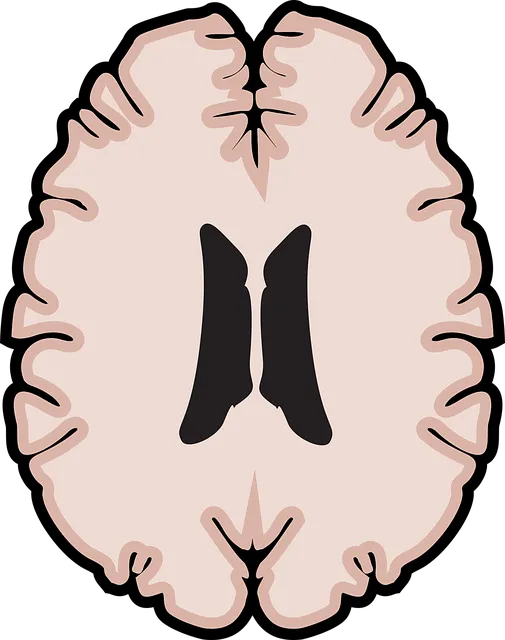The Kaiser Permanente Mental Health Access Center in Aurora prioritizes group facilitation as a powerful tool for community mental wellness. Structured sessions, led by healthcare professionals, offer safe spaces for individuals facing diverse mental health challenges to connect, share, and learn. The center's programs cater to specific populations, empowering participants with coping strategies, fostering belonging, and enhancing mental health understanding. Through community outreach, these support networks extend to underserved areas, reducing stigma and promoting early intervention. Effective facilitation involves creating inclusive environments, active engagement through interactive activities, cultural sensitivity, and structured yet flexible formats for processing sessions. Success is measured through goal setting, evaluation, feedback, attendance tracking, and symptom monitoring, with adaptability crucial for program relevance and participant empowerment.
Mental wellness group facilitation plays a crucial role in enhancing access to care at Kaiser Permanente Mental Health Access Center, Aurora. This article explores proven techniques for effectively leading group sessions that foster safe, inclusive environments, engage participants actively, and guide supportive conversations. From creating structured agendas to measuring success, discover strategies designed to improve outcomes at the Kaiser Permanente Aurora mental health center.
- Understanding Group Facilitation for Mental Wellness at Kaiser Permanente Aurora
- Creating a Safe and Inclusive Environment: Key Techniques
- Engaging Participants: Strategies for Effective Interaction
- Leading Supportive Conversations and Processing Sessions
- Measuring Success and Adapting Facilitation Approaches
Understanding Group Facilitation for Mental Wellness at Kaiser Permanente Aurora

At Kaiser Permanente Aurora’s Mental Health Access Center, group facilitation plays a pivotal role in enhancing mental wellness within the community. This approach recognizes the power of collective support and shared experiences in fostering recovery and resilience among individuals facing various mental health challenges. By facilitating structured group sessions, healthcare professionals create safe spaces where members can connect, share their stories, and learn from one another.
The center’s innovative Mental Health Education Programs Design focuses on engaging activities and discussions tailored to specific populations’ unique needs. Through these programs, participants gain valuable coping strategies, build a sense of belonging, and develop a deeper understanding of mental health. Additionally, Community Outreach Program Implementation initiatives ensure that these support networks reach underserved communities, promoting public awareness campaigns development aimed at reducing stigma and encouraging early intervention.
Creating a Safe and Inclusive Environment: Key Techniques

Creating a safe and inclusive environment is foundational to effective group facilitation, especially when addressing mental health concerns at centers like Kaiser Permanente’s Mental Health Access Center in Aurora. This begins with establishing clear ground rules that emphasize respect, confidentiality, and active listening. Facilitators should encourage open dialogue, ensuring every participant feels heard without judgment. Using non-threatening language and fostering an atmosphere of acceptance helps individuals feel more comfortable sharing their experiences and emotions.
Techniques such as self-awareness exercises and mental wellness journaling can be powerful tools to enhance group cohesion and individual growth. These activities not only promote reflection but also encourage participants to identify and express their feelings, ultimately contributing to improved mental health outcomes. By combining these strategies, facilitators at Kaiser Permanente’s Mental Health Access Center in Aurora create a supportive environment conducive to healing and personal development.
Engaging Participants: Strategies for Effective Interaction

Engaging participants actively is key to successful group facilitation, especially at centers like the Kaiser Permanente mental health access center Aurora, where diverse communities seek support. Facilitators should employ strategies that foster open dialogue and create a safe space for emotional expression. Incorporating interactive activities, such as icebreakers or small group discussions, helps to build rapport among members, encouraging them to share their experiences and perspectives.
Cultural sensitivity in mental healthcare practice plays a vital role in these interactions. Facilitators must be aware of the unique cultural backgrounds and beliefs within the group, adapting their approaches to respect and include everyone. This might involve learning about different emotional healing processes and coping skills development methods, ensuring that the support offered is culturally responsive and relevant to the diverse needs of participants.
Leading Supportive Conversations and Processing Sessions

At the Kaiser Permanente mental health access center Aurora, facilitators play a pivotal role in leading supportive conversations and processing sessions that foster mental wellness. These techniques are designed to create a safe and non-judgmental environment where individuals can openly discuss their experiences, emotions, and challenges. Facilitators use active listening skills to mirror and paraphrase participants’ sentiments, encouraging them to explore their thoughts more deeply. By fostering open dialogue, these sessions promote better understanding and provide opportunities for building social skills and resilience.
Through structured yet flexible formats, facilitators guide conversations that focus on stress management strategies, resilience-building techniques, and enhancing coping mechanisms. By incorporating interactive activities and group reflections, these sessions not only help individuals process their experiences but also equip them with practical tools to navigate life’s challenges. The Kaiser Permanente mental health access center Aurora’s approach ensures that every participant feels supported and empowered, reflecting a holistic commitment to mental wellness.
Measuring Success and Adapting Facilitation Approaches

Measuring success is a vital aspect of group facilitation, allowing facilitators to assess the impact and effectiveness of their programs, such as those offered at the Kaiser Permanente Mental Health Access Center in Aurora. By setting clear goals and utilizing appropriate evaluation methods, facilitators can gauge improvements in participants’ mental wellness. This involves collecting feedback from members, tracking attendance rates, and measuring changes in symptoms related to depression prevention or mood management. Regular self-assessments and reflection sessions within the group provide opportunities for members to share their experiences and offer insights into what’s working and what needs adjustment.
Adapting facilitation approaches based on these measurements is crucial. If certain techniques prove ineffective, facilitators can experiment with alternative strategies tailored to the unique needs of the group. For instance, if initial stigma reduction efforts don’t resonate with all members, facilitators might modify their approach, incorporating more interactive and engaging activities to foster a safer and more supportive environment. This dynamic process ensures that the program remains relevant and responsive to the evolving mental health landscape, ultimately enhancing the overall success of the facilitation techniques employed.
Group facilitation techniques play a pivotal role in enhancing mental wellness at Kaiser Permanente’s Aurora Mental Health Access Center. By creating safe, inclusive spaces and employing engaging strategies, facilitators can foster meaningful connections and support among participants. Effective interaction and supportive conversations encourage active participation, while structured processing sessions promote healing and growth. Continuously measuring success and adapting facilitation approaches ensures tailored care for each individual, ultimately enhancing the overall well-being of the community served by Kaiser Permanente Aurora.






